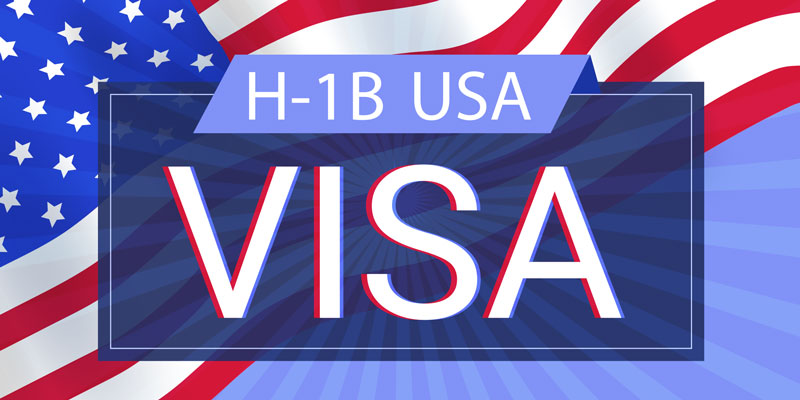
In this article about the AC21 Portability rule, you will learn about:
Before understanding the AC21 Portability rules, it is necessary to know a bit about what happens to the H1B visa at the end of 6 years. How does that process unfold?
The H1B visa allows you to stay in the US and work for a US-based employer. Your H1B status is valid for an initial three years, after which you can apply for an extension for an additional three years. During this six-year H1B period, the USCIS rules allow you to change your employer and start working for your new H1B employer as soon as you file a fresh H1B petition with the USCIS.
This H1B visa portability is a now straightforward and hassle-free process, thanks to The American Competitiveness in the Twenty-First Century Act AC21.
AC21: A Closer Look
Implemented in the year 2000, the AC21 comes with two provisions. It allows foreign nationals to:
So, how does the AC21 make a difference for H1B holders? Before AC 21 came into existence, H1B holders had to leave the US after the six-year validity period. Also, if they had filed their adjustment of status application, they had to remain with the same employer until they obtained their green cards.
Fortunately, the AC21 has changed it all. According to the AC21 rule for HB extension, the USCIS allows H1B holders to:
This essentially means:
The H1B portability bestows a special privilege on H1B non-immigrant workers by giving them the right to commence employment before the H1B petition is approved. Therefore, the qualification requirements for H1B portability are strict and precise. If you wish to enjoy the benefits of H1B portability, It is mandatory to meet the following conditions.
You must:
USCIS confirms that H1B visa portability is only available to individuals who are currently in H1B status or the applicants whose H1B extensions have been approved.
The H1B Visa Portability has its fair share of pros and cons. Knowing both sides of the coin will help you decide what's best for your H1B extension.
The Advantages
The H1B visa portability not only benefits you and your employers.
For H1B holders: It allows non immigrant H1B holders to change employers without delay or confusion.
For employers: By bringing predictability to the hiring and planning process, visa portability rules benefit employers.
The Disadvantages
The portability does not guarantee that the USCIS will approve the H1B visa petition. If the petition is denied, the H1B status will be terminated, and they will have to leave the US immediately.
Hence, it is always wise to analyze your circumstances and your possibilities with H1B portability. You may also hire an immigration attorney to help you understand the system and optimize your chances of getting your H1B petition approved.
Traveling within the US is permitted while the H1b Portability Petition is pending approval of change of status by the USCIS. However, traveling outside the US when the transfer petition is pending will entail the risk of USCIS abandoning the change of status request. Hence it is recommended not to travel internationally when a portability petition is pending. If there is an emergency requirement to travel outside the US, before you re-enter US, please ensure you have:
It's always best to consult an immigration attorney as it is recommended that you do not take chances with the USCIS legal requirements.
1. Should I notify the USCIS about my changing job?
Yes, you should. As the H1B holder, it is technically your responsibility to inform the USCIS of the change in employment. Notifying the USCIS forms a part of your I-485 Adjustment of Status application. You may also receive a Request for Evidence (RFE) or a Notice of Intent to Deny (NOID) when the USCIS adjudicates your adjustment application and when it comes to know that you no longer work for the employer listed in your LCA or I-140.
2. Who is eligible to request for H1B Extension using AC21?
Any foreign worker in the US can request an H1B extension under the following conditions:
All H1B holders can apply for H1B extensions any number of times after six years.
3. Can the USCIS deny H1B extensions after six years? If so, why?
A beneficiary with an approved I-140 petition will also be able to extend their H1B status for three years until the I-485 is approved.
4. What is the process for requesting post 6th-year H1B Extensions?
To apply for H-1B extensions, applicants should explain and prove their eligibility under AC21 provisions in the petition letter.
Also read: LCA for H1B Visa - Stay on Top of The Facts!
The H1B Visa Portability is a blessing for H1B holders looking to change jobs during their H1B validity period. The best thing about H1B Portability is that H1B holders can change their employer upon submitting their H1B extension petition instead of waiting for the petition approval.
Want to know more about H1B Portability and its benefits? Visit TechFetch H1B for more information and details.
**Disclaimer: All information regarding H1B visa is subject to change. Kindly refer the USCIS official website for updated information.